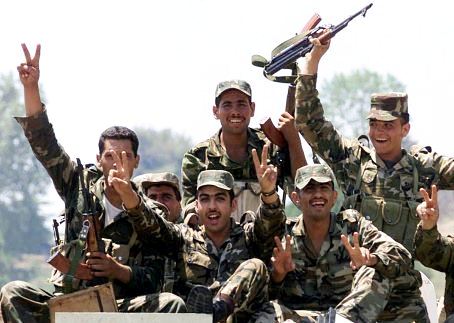Syria
Syrian Army keeps securing Abu al-Zuhour airport

Syrian Army continues the operations against Free Army militia by targeting the strongholds of the armed terrorists in Tal Salmo and al-Teraa villages of Abu al-Zuhour countryside and hitting their locations in Em Green, Abu al-Zuhour, al-Buaytee towns that are closed to the military airport, what resulted in the death and the injury of many of the gunmen and the destruction of 3 vehicles loaded by machine guns.
The operations maintains by striking the gathers of the insurgents in Ain al-Qasab, Qatroun, al-Mazulah, al-REmanah in Jeser al-Shughour countryside and by destroying their dens in Ehsem, Ebleen of Jabal al-Zawyeh claiming the life of a number of the gunmen and the injury of others.







